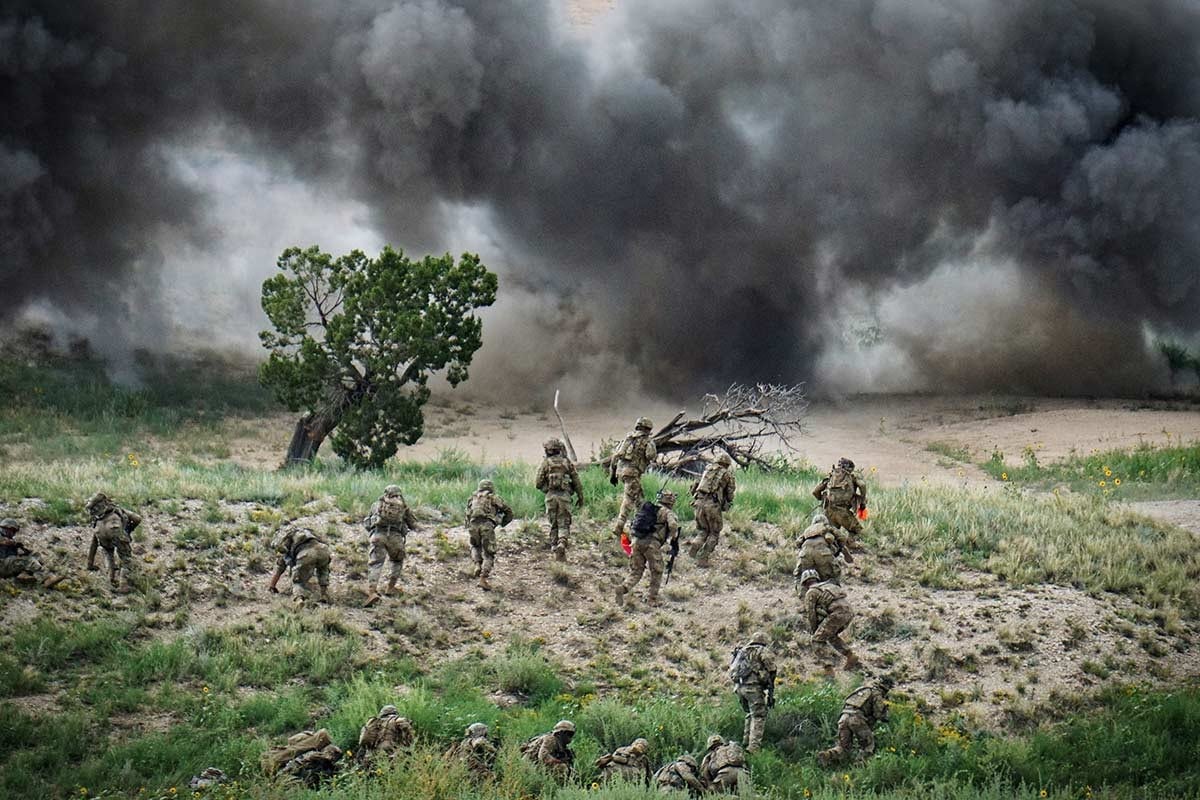The Army is conducting a study to determine whether it should change the size of its infantry squads as it adds “Next Generation” technology to the force’s elemental fighting unit.
Col. Alexis Rivera Espada, head of the Army’s Maneuver Battle Lab at Fort Benning, Georgia, referenced the “squad study” Thursday during a presentation at the National Defense Industrial Association’s virtual Armaments, Robotics and Munitions annual event. The study commenced this year and will include experimentation in force on force events next year.
The colonel called the study, directed by Army Headquarters, the first of its kind in decades.
In recent years, the Marine Corps ran its own series of infantry squad experiments, eventually shifting its size from 13, which had been in place for decades, to 15.
The 15-Marine squad adds a squad systems operator to take on the new array of small drones and coming ground robots available to the unit. The other add-on was an assistant squad leader to better manage coordinating fires and the flood of information coming to the squad.
The Army has held infantry squads in nine-soldier formations for decades, preferring to keep the company as a base of maneuver for its dismounted troops, meaning the smaller squads were simply components of that larger group.
But, in just the next two years, two key pieces of gear are headed to that smaller squad.
The Integrated Visual Augmentation System, or IVAS, a do-it-all goggle that adds augmented reality for navigation, targeting, communication, bio-tracking and even facial recognition and text translation is expected to go to its first units within a year.
The Next Generation Squad Weapon, or NGSW, will add extended range, accuracy and lethality once fielded. The 6.8mm weapon will replace both the Squad Automatic Weapon and the M4 carbine.
But those are only the tangible items in the hands of soldiers. More importantly, a deeper, more expanded and robust network of sensors and connections from the squad through its higher echelons will put an array of weapons platforms in the hands of the lowest levels of the close combat units.
Todd South has written about crime, courts, government and the military for multiple publications since 2004 and was named a 2014 Pulitzer finalist for a co-written project on witness intimidation. Todd is a Marine veteran of the Iraq War.




